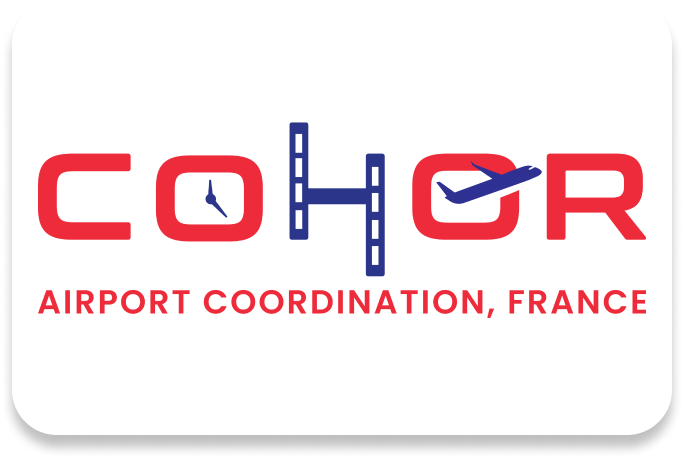Home | Rules




European Rules
To ensure transparent, neutral and non-discriminatory application of slot coordination procedures across the European Union, the Council Regulation (EEC) No95/93 of 18 January 1993 on common rules for the allocation of slots at Community airports applies to the coordinated and facilitated airports.
EU95/93 regulation revised 26/10/2022
EUACA Recommended Practices
The Regulation states in Article 8.5 that the coordinator or schedules facilitator shall take into account additional rules and guidelines established by the air transport industry world-wide or Community-wide.
Community-wide guidelines have been developed by the members of the European Airport Coordinators Association (EUACA) in the form of EU Slot Guidelines which have evolved out of the application of the Regulation by the coordinators and schedules facilitators in the EU.
These guidelines are designed to supplement and clarify both the Regulation and the IATA Worldwide Airport Slot Guidelines.
Once approved by the members of the EUACA copies of the EU Slot guidelines are sent to the European Commission.
These guidelines are used as a source of reference for all industry stakeholders when dealing with complex coordination issues.
Details of the current EU Slot Guidelines can be found in the Library page of EUACA.
French Rules
• Decree N°2007-863 of 14 May 2007 modifying administrative sanctions for violations of certain provisions of books I and III of the “Code de l’Aviation Civile”
• Night Restrictions
• Paris Orly Airport (ORY) :
04 April 1968 decision from the transport ministry restricting night operations on Orly airport
• Paris Charles de Gaulle Airport (CDG) :
2 May 2012 decree restrincting night operations for some aircraft having a high noise level at CDG
• Nice Côte d’Azur Airport (NCE) :
2 March 2010 decree restricting operations at Nice-Côte d’Azur airport
• Lyon St Exupéry Airport (LYS) :
30 June 2006 decree restricting operations at Lyon – Saint-Exupéry airport
• Nantes Atlantique Airport (NTE) :
28 septembre 2021 decree restricting operations atNantes-Atlantique airport (Loire-Atlantique)– Légifrance (legifrance.gouv.fr)
Useful links :
• SIA
• ACNUSA
• DGAC
International Rules
Worldwide Airport Slot Guidelines V3
The management of airport slots is required at some airports due to the limited infrastructure being insufficient to meet the demand of airlines and other aircraft operators. To provide the global air transport community with a single set of standards for the management of airport slots at coordinated airports and of planned operations at facilitated airports, the Worldwide Airport Slot Guidelines (WASG) is published by Airports Council International (ACI), the International Air Transport Association (IATA) and the Worldwide Airport Coordinators Group (WWACG).
The WASG outlines the coordination process rules and general requirements to the coordinators and facilitators. The coordination process and its deadlines can be found in the Calendar of Coordination Activities published on the IATA website.
To enable electronic communication and data exchange for maximizing the efficiency of slot coordination process, the Standard Schedules Information Manual (SSIM) containing the set of standards guiding the industry with recommended practices, messaging formats and data processing procedures is published annually.
COHOR Rules
Control of the usage of slots allocated by COHOR
In accordance with the amended European Council Regulation N°95/93 on the allocation of slots, the national legislation, the Worldwide Airport Slot Guidelines (WASG) and local rules, COHOR monitors the usage and the adherence of slot allocated to the air carriers and operators of general and business aviation on the French coordinated airports.
In addition, COHOR also applies the Recommended Practices developed by the European Airport Coordinators Association (EUACA) on the control of the usage of slots.
CONTACT : [email protected]
COHOR’s assignement
Identify possible misuses by comparing flight plans and airport slots.. For each flight coming to or from a French coordinated airport, COHOR makes, from 4 hours before the departure time of its origin as mentioned in the filed flight plan submitted to the air traffic control services, a comparison between the data of the flight plan and the allocated slot on the French coordinated airport concerned.
When a misuse is detected, such as:
- flight plan without any slot associated flight
- plan with characteristics significantly different from the allocated
- slot missing identification number (slot ID) on the general or business aviation flight plan other cases
- Others cases
a message is generated to the flight plan issuer in order for him to take all necessary actions to ensure compliance between the flight plan and/or the slot on the relevant French coordinated airport(s).
If no action is carried out following the sending of this warning message, the flight plan of a flight willing to operate without an allocated slot on a coordinated airport, for the period which the airport is coordinated, may be suspended by the authorities.
Therefore, we strongly recommend air carriers to warn their operational services in charge of flight plan process, to carefully consider these warning messages that are sent by the German air traffic control services (DFS, Deutsche FlugSicherrung) on behalf of their French counterpart (DSNA, Direction des Services de la Navigation Aérienne). This awareness is particularly important when the flight plan process services are outsourced.
Identify cases of misuse of slot
COHOR compares the data of the operated flights with the allocated slots in order to detect:
- Flight operated without slot
- Flight operated in different conditions from the allocated slot. In particular at a different schedule.
- Allocated slots not used by air carriers, resulting in a waste of airport capacity.
COHOR processes those cases of slot misuse or presumed breach of regulation by requiring justifications to operators or to their handlers for general or business aviation, when necessary.
In their own interest, we request air carriers being questioned on such cases of misuse to answer as early as possible the demand of explanations sent by COHOR. Answer shall be sent to the communicated address.
Then, COHOR communicates the results of the investigations for each alleged infringement to the French Civil Aviation Authority (DGAC). In turn, DGAC processes each case of infringements and then send the files to the Administrative Committee of the Civil Aviation (CAAC).
This committee is appointed by the Minister in charge of Transport and is composed of the following: ·
- Representatives of Civil Aviation
- Representatives of air carriers
- Representatives of airports
- Representatives of air transport police
CAAC convenes air carriers in order to hear their circumstances on the breach of regulation and evaluates the administrative fine that will be submitted to the Minister in charge of transport if the infringement is confirmed. The Minister then decides, if necessary, the final sanction.
Link to sanctions recently pronounced by the Minister on the proposal of the CAAC: Slot coordination and schedules facilitation | Ministry of Ecological Transition (ecologie.gouv.fr)
Exception: Departure flights from Charles De Gaulle Airport during the night (between 00:00 and 04:59 local time) on the breach of regulation of the 06thnovembre 2003, of November 2003, are punishable by an independent Authority, named ACNUSAhttp:/ /www.acnusa.fr/ ). The detected infringements will follow a different process and the fine can be much more expensive.
Slot Performance committee (SUC)
The SUC is a subcommittee of the French airports coordination committee. It is composed of air carriers or representative associations, airports, French civil aviation (DGAC) and COHOR.
The committee meets twice a year at each end of IATA season.
The SUC reviews the problems encountered on coordinated airports relative to a misuse of slots, and proposes some operational solutions either to the air carriers concerned or to the French airports coordination committee.
Historic Slots
Determination of Historic Slots by COHOR v1
